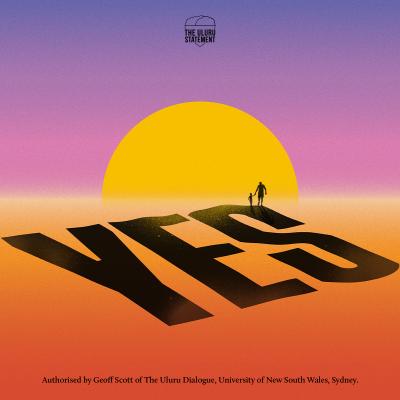Two weeks from today I’ll wake up with a new sense of the country I call home.
Will a majority of 97% of Australian’s vote YES to give 3% a Voice to parliament in recognition of their ancient connection to country?
I think they will.
I hope they will.
I believe they will.
But it’s going to be close. And that in itself is a bit heart breaking. It shouldn’t be close.
It should be an easy, and enthusiastic yes, as it was in 1967.
This is a simple, but fundamental addition to the Australian constitution that recognises the first people of the continent in a meaningful manner.
This is what will be added:
In recognition of Aboriginal and Torres Strait Islander peoples as the First Peoples of Australia:
There shall be a body, to be called the Aboriginal and Torres Strait Islander Voice;
The Aboriginal and Torres Strait Islander Voice may make representations to the Parliament and the Executive Government of the Commonwealth on matters relating to Aboriginal and Torres Strait Islander peoples;
The Parliament shall, subject to this Constitution, have power to make laws with respect to matters relating to the Aboriginal and Torres Strait Islander Voice, including its composition, functions, powers and procedures.”
This is what we’ll be asked:
A Proposed Law:
to alter the Constitution to recognise the First Peoples of Australia by establishing an Aboriginal and Torres Strait Islander Voice.
Do you approve this proposed alteration?
And this is how I’ll vote:
YES
We will need more than a majority to vote yes, we also need a majority of people in 4 out of 6 states to be in favour of this change if the referendum is to pass. Almost half of Australians live in NSW and Victoria. Polling suggests a majority of people in these states will largely vote YES. QLD has the third largest population, and pollsters suggest a majority there will vote NO. Tasmania, the smallest state, is leaning towards YES. This leaves West and South Australia teetering on the fence.
We need to resolve the long standing question of recognising the First Nations people of the great southern land.
If not now, when? It’s time. Let’s do this Australia.
I've read a few fears and concerns of people about what a Voice might mean.
Here's what I've learned after reading through the detail, and commentary.
The Voice is legally sound. The idea, and the amendment to the constitution has been developed, and refined by people with a legal background in constitutional law.
The proposal for a voice was made after years of discussion, debate, and consultation. There are lots of details available about this, but the important detail for this referendum, is that the Australian people as a whole are being asked about the principle of having a voice to parliament, Yes, or No. The details on how it works will be designed next, through normal parliamentary processes, after we agree it should be done.
The Voice will help Indigenous Australians have a say in a way they have been denied so far. Evidence shows that when people are included in decision making about issues that impact them, we get better decisions.
"No issue is beyond its scope." That is as it should be. Any issue has the potential to impact indigenous people, and the Voice is about making representations on "on matters relating to Aboriginal and Torres Strait Islander peoples." There's no obligation on parliament to respond, or act, only that they listen.
The Voice will be permanent. Yes! That's the whole point of the referendum. Previous bodies, organisations, councils, and committees have been abolished by Governments. Enshrining this in the constitution means it must exist. Exactly what form it takes can be changed by parliament. So yes, it's permanent, but it's not fixed, and rigid. It can adapt as it needs to.
Yes, there may be better ways forward, and we can continue to explore those. The Voice will not prevent us from continuing to address systemic disadvantage. It will enhance our ability to understand the issues, and involve those impacted in the solutions. It will enable us to learn from the continuing cultures of Aboriginal and Torres Strait Islander communities.

